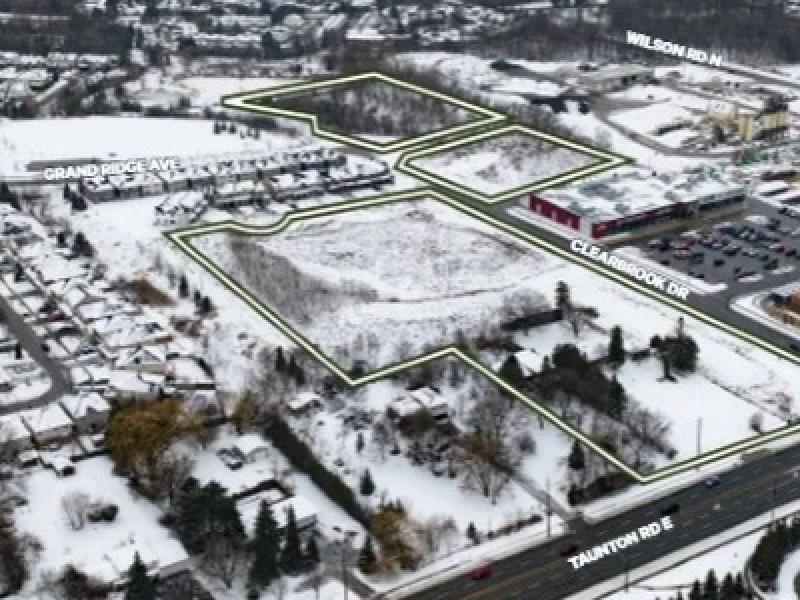
Sprout Dwellings Inc., a Halifax-based modular housing designer and builder, is finding opportunity for its backyard suites as the city looks for ways to bring more affordable housing to the market.
Founded in 2020, Sprout offers a line of customizable modular housing ranging from studios to two-bedroom units. Currently, the product is available in the Halifax area, though the company has plans to expand.
Partners and co-founders Sean Kirkwood, Oliver Nemeskéri and Erin Crosby created Sprout to go “down the path of something that left more of a legacy” and address the housing shortage in the Halifax area, Kirkwood told RENX Homes.
With Halifax changing bylaws to allow for secondary and backyard suites, he believes Sprout can meet the moment with efficient and affordable options.
‘Gentle densification’
Former digital marketers Kirkwood and Nemeskéri, and real estate agent Crosby co-formed Sprout during the COVID-19 pandemic. The world-changing event led Kirkwood and Nemeskéri to re-evaluate their lives, and both settled on addressing housing unaffordability in Halifax as their new purpose.
While the three were working out of a 120-year-old backyard carriage house “that sat idle and underutilized for many, many years,” Halifax amended its bylaw to allow backyard suites. Living in an older property that could be repurposed for another use led to the realization of how modular housing can address a “critical housing shortage” in Halifax, and this was the spark for Sprout.
The company adheres to the concept of “gentle densification”, as Kirkwood called it; “a way to increase inventory on the market without major disruptions to infrastructure.”
The repeatable model Sprout uses enables the leveraging of “different inputs for efficiency, sustainability, accessibility. We found there are no real direct competitors,” he said.
Kirkwood also noted Sprout has caught on as a cottage offering, where offering a low-maintenance building type has its benefits in Nova Scotia’s outdoors. About half of the company's builds so far have been cottages.
Sprouting up modular housing
Sprout handles the designing of units and part of the construction with an in-house team. Kirkwood said the company also guides customers by handling the complexities like submitting for a permit and arranging subtrades.
Its housing units are built using a more traditional stick framing method, rather than prefabricated installations from a factory. Sprout prefers stick framing because it allows builds in tighter spaces like backyards, and bypasses shipping costs, Kirkwood said.
Sprout’s repeatable design means the company can benefit from efficiency of scale however. Parts like windows, doors and trusses are purchased in large numbers to reduce costs and to have components ready for future builds. Passive House design methods and products like FASTslab, a slab-on-grade foundation, are leveraged for Sprout’s units.
Kirkwood said Sprout’s first builds in 2021 took 14 to 15 weeks to get a permit approved, which was not compatible with the company’s business model. Sprout approached the Halifax government to recognize its plans and the quality of builds, which ended up shrinking the permitting application wait time to five days.
The framing and roof for a unit can be complete in one or two weeks, and most of its products are sourced locally from Nova Scotia or Canada, with some coming from the U.S. From the pouring of a concrete slab foundation, a Sprout unit can be finished in four to six months, according to Kirkwood.
The backyard units and cottages are customizable. They can be elongated, have custom window placements or have skylights added, for example.
Kirkwood said Sprout’s design is intended to address accessibility, with options such as wider doors to accommodate the elderly or people with disabilities. Customers have expressed their satisfaction with Sprout because a backyard suite allows chronically ill or elderly parents or family members to be close by for easier care - but also maintain some degree of privacy and independence.
Complementing the economic efficiency is energy efficiency. A two-bedroom Sprout unit uses 28.4 per cent less energy compared to a typical new house, according to the company. A solar panel system can be installed on a two-bedroom Sprout unit, covering approximately half of its energy needs.
Sprout’s products
Sprout’s line of modular housing includes:
- a studio unit featuring a bathroom, kitchen and living space at approximately 325 square feet;
- side or back one-bedroom units at approximately 580 square feet; and
- a two-bedroom unit measuring 730 square feet.
The base price for a studio unit is $175,000 while a two-bedroom variant is priced at $285,000.
Sprout’s builds are currently available to people within an hour of the Halifax peninsula and occasionally outside that range. It has completed 12 units, is currently working on two and is preparing to build more, Kirkwood said.
Most of the interest in Sprout’s products has come from people in their 40s to 60s, Kirkwood said, with healthy interest from retirees. Other buyers are investors looking for passive income or adults with family members to care for.
Though its concentration is on Halifax, there is a “tremendous amount of interest from areas beyond that we are not able to service yet,” Kirkwood said. Sprout has its ambitions to service the rest of Canada and beyond.
It is also exploring less expensive models for a broader demographic and building some components in a factory.
“We see this a solution that can only get faster and better.”










